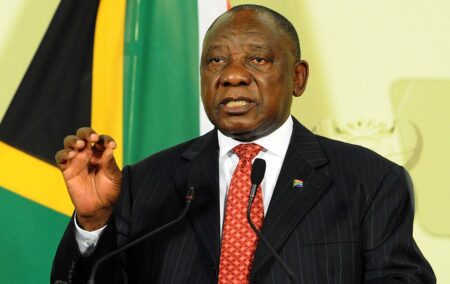A couple of weeks ago, I used my column to muse on reasons to be optimistic. I’ve done so on other platforms too. And while I remain intrigued about the possibilities that seem to be opening up, I would also like to recall my own scepticism at what they portend.
As I have also frequently noted – and would not be alone in doing so – the ANC adheres to a particular worldview that imbues it with a sense of mission and mandate; its responsibilities to the society it embodies and the history it regards itself as responsible for will not easily be discarded. This, call it the pull of ideology, will not easily be surrendered, and in that sense, reform is always likely to be at best grudgingly conceded in the face of extreme necessity.
Lethargic economic growth, a stunted electricity supply, and a stressed fiscus have promoted some reflection on the appropriateness of the country’s policy environment – but not yet, it seems, by all.
Speaking at the tail end of the meeting of the ANC’s National Executive Committee, President Cyril Ramaphosa firmly stated: ‘The NEC has affirmed the ANC’s position that broad-based black economic empowerment remains one of our key policy instruments.’
Fully comply
And soon thereafter, he devoted his weekly newsletter to the matter of the recently promulgated Empowerment Regulations, reiterating: ‘The new regulations have no effect on the Broad-Based Black Economic Empowerment Act, as all organs of state must fully comply with this Act when developing their procurement policies. This Act remains in force as one of the most transformative pieces of legislation to come out of democratic South Africa.’
The President has made it clear that in his view, BEE is here to stay, as is localisation. (Perceptive readers will recall that I quoted erstwhile minister Rob Davies as saying in 2018 that the government would ‘not be able’ to abandon either policy – and that his words might yet prove prophetic.)
Interestingly, except in the broadest terms, he offered no defence of the merits of the policy. This is quite common. The case for it, when the case is made, is invariably made with reference to its intentions, rather than its results. And while it may have been intended as a response to the exclusion of black people from the economy, it’s doubtful in the extreme that it has had that as an outcome. I’ve commented extensively on this. Not only in South Africa, but around the world, policies of group preferment have performed indifferently, generally benefiting those best placed to take advantage of them – who are invariably members of the beneficiary community who personally have least need of them (or who may not be members of those communities at all, since enterprising individuals of all stripes can learn to game the system, as our very own Bosasa demonstrates).
In its outcome, there is an extensive body of evidence that BEE has done more harm than good. To the extent that it has assisted in building black-owned businesses, this must be weighed against the extent to which it has been used as a cover for the preferment of the politically connected, the facilitation of corruption, and the distortion of the broader market.
Empowerment considerations
So, if procurement decisions lead to more expensive and lower-quality goods and services because of empowerment considerations, these are costs that will be borne by their customers and clients. In the case of an institution like Eskom, a supposed enabler of the economy, these costs can be steep indeed.
‘The new regulations are not “a victory for sound business practices” as one interest group has claimed. What is unsound, unsustainable and, above all, immoral, is an economy that benefits the few at the expense of the many,’ the President states.
Well, that is a matter of perspective. If indeed BEE ensured that the benefits of the economy were widely shared – and creating that impression is why it has been rebranded as ‘Broad-Based’ – then the President’s views would be well-founded. But that’s not how it has worked out. By imposing costs on the economy, it has helped to create insiders and outsiders and has degraded the environment for investment and doing business. Above all, to quote the President, this has meant less growth and fewer employment opportunities. Unsound, unsustainable and immoral to be sure.
Incidentally, the Zondo Commission made it clear that value-for-money needed to be the predominant concern in public procurement: ‘Ultimately in the view of the Commission the primary national interest is best served when the government derives the maximum value-for-money in the procurement process and procurement officials should be so advised. The same problem is encountered when a choice must be made between the competing virtues of localisation and lower cost. Again, the view of the Commission is that the legislation should make it clear that in such a case the critical consideration is value-for-money.’
It is this outcome that the changes to the procurement regulations would make possible – if they are so interpreted. The President doesn’t seem to have come to this realisation.
Expect this sort of resistance to reform. It’s in the nature of the ideological framework within which the President – and the government he heads – operates. How this will play out will depend on the energy with which those of us committed to reform are willing to push for it.
If you like what you have just read, support the Daily Friend

